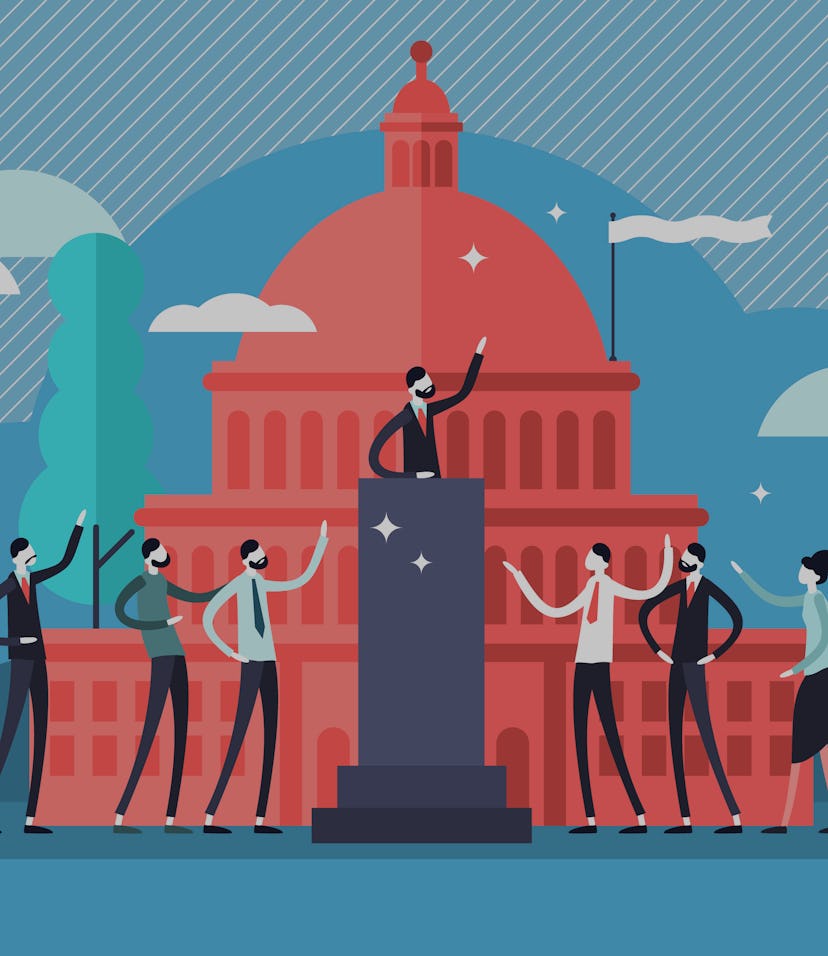Culture
Brace for the hyper-partisan nano-influencer this presidential election
Politically savvy propaganda is expected to hit social media networks, especially from Instagram's new Reels feature.

Political campaigning has gotten exponentially more sophisticated over the years. Sure, aspiring presidential candidates still pretend to care about the working class by visiting diners in the Midwest, but now campaign strategists are eyeing so-called nano-influencers as digital door knockers for political propaganda.
In a revelatory report by Wired, this phenomenon of nano-influencers — still in its infancy — could become a major tool for wielding influence over undecided voters who are extremely online thanks to COVID-19 induced lockdowns. It's a recipe for political chaos, especially given the factual misgiving or straight-up falsehoods that can be propagated when there's money involved.
It's hard to sniff them out — So far, according to Wired, it has been difficult to quantify and compartmentalize the actual influence these small-level social media celebrities have. There's a technical explanation for this problem.
For starters, there are pretty relaxed rules around influencers stating their relationship with sponsored content as far as Twitter is concerned. On Instagram, too, the enforcement of these policies is fairly lax and easy to conveniently ignore. In contrast, YouTube is much more stringent about content creators openly stating their relationships with companies or when sponsored products make their way into videos.
Another problem is Instagram's ad library that doesn't clearly specify a political ad unless it's in the paid "promotion" category. So, it's not impossible to evade clarity and honesty if you're a nano-influencer looking to convert your audience to your favorite Republican, Democratic, or even independent candidate this election season.
Rapidly growing interest — Political campaign managers on both sides of the aisle spoke to Wired with the promise of anonymity and noted that there's massive interest in using nano-influencers to try to exercise political influence and possibly even encourage ideological shifts. Every vote counts, after all, especially when, if the President gets his way, some votes might not count at all.
Just like you and me — Even with the phenomenon being nascent, strategists are eyeing social media users with around 5,000 followers, which is the current definition of a nano-influencer follower pool. They're everyday people, too, who can be bought with dark money. These targets could be makeup artists, gardeners, spiritual enthusiasts or religious figures, small business operators, or graphic designers. The idea is based on the same word-of-mouth formula marketers have prized since the first time someone tried selling something to someone who wasn't sure they needed it.
Especially when it comes to building trust, nano-influencers have higher engagement rates than others due to actively responding to comments, questions, and other engagement. The good news is the phenomenon is relatively new and with the right kind of proactive thinking and effective paid-partnership regulations that require transparency right off the bat, this nightmare can be nipped in the bud. The bad news is, it probably won't be and we'll be reading about it's effects after the election.